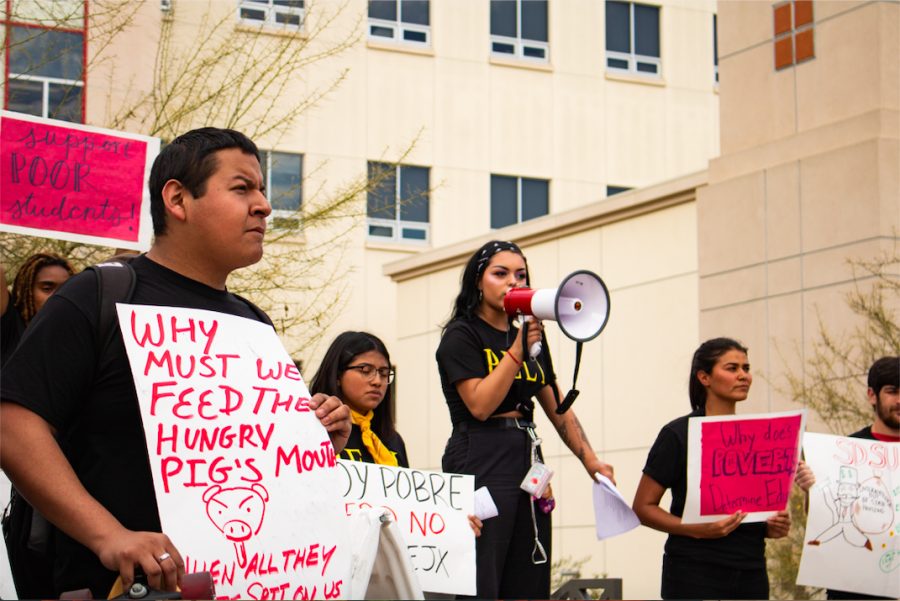The San Diego State University Senate decided to consider economic factors in the university’s admission process on March 5 in a push toward the inclusion of low-income students.
The Senate also decided to extend the Compact for Success program, which many of SDSU’s low-income students gain direct admittance from.
On the same day of the decision, students from MEChA, as well as supporters from other student activist organizations, protested at SDSU to raise awareness of the declining admission rate of Pell Grant-eligible students, despite an overall increase of student admission to the university.
However, representatives of MEChA left early to attend a Senate meeting and demand answers.
Economics senior and president of MEChA Omar Alejandro, who attended the senate meeting, said the Senate agreed to extend the Compact for Success program, which was planned to be cut from the university, as a result of the students’ lobbying.
“(The Senate) will be taking economic factors into consideration when doing admissions,” Alejandra said.
According to a flyer handed to supporters of the protest, in 2012, 37 percent of admitted SDSU students from California were Pell Grant recipients. As of last year, the percentage declines to 28 percent.
The flyer also states the reasoning for the declining admission rate is due to these students not being academically ready for SDSU.
Associate Vice President for Faculty Diversity and Inclusion J. Luke Wood also attended the meeting and said he was satisfied to see the students step forth and take action.
“I would say that overall, we were pleased to see that students were practically engaged in those processes,” Wood said. “(We’re happy) that they were bringing their thoughts, perspectives and ideas through our university decision-making process.”
Mechanical engineering graduate student Maricruz Carrillo said the university is not fulfilling its duties as an inclusive public campus by failing to serve its low-income student community.
“(SDSU) is supposed to be the affordable option for low-income students of the community,” Carrillo said. “It is getting benefits from displaying a diverse and inclusive campus and getting grants from the state … but it is not serving the community it is supposed to serve.”
Viewers of the protest shared their insight and support for the members of the rally. Spanish senior Kenia Quezada Mojica said she appreciated the rally’s official title, “Rally in Support of Poor Students.”
“I think they did a great job,” Mojica said. “I’ve seen other protests that have had a larger crowd but … they named the rally, ‘Rally in Support of Poor Students’ and I like that they put the word poor in there because it makes a lot of people uncomfortable. People need to be aware of the use of language because it does make a bigger statement.”
Classical humanities senior Kelly Lillis said she was attracted and moved by the students at the rally due to her own personal experiences.
“They drew me in and kind of pulled on my heartstrings because I’m a first generation student too so I know how hard it is to make it through the system,” Lillis said. “And it’s just kind of heartbreaking that students have to rally. I feel like it’s a big problem, people are wanting their education and I know the struggles.”










